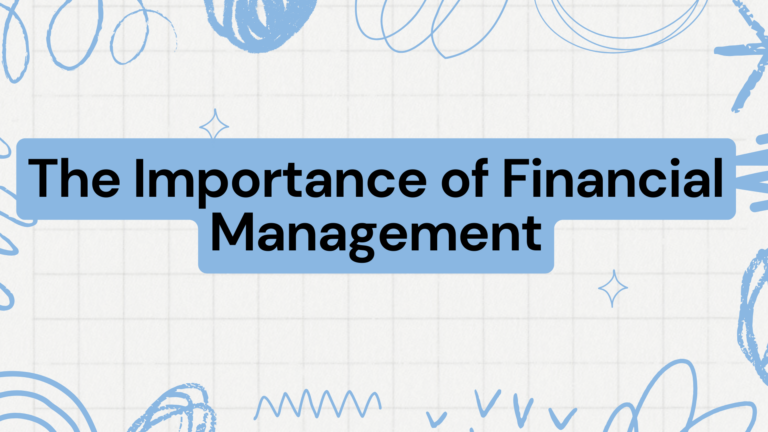Comprehensive Financial Planning: A Holistic Approach to Your Financial Success
Financial success is not a result of chance but of deliberate planning and informed decision-making. Comprehensive financial planning is a holistic approach that encompasses various aspects of your financial life, ensuring that all elements work together towards your long-term goals. This article explores the importance of comprehensive financial planning and delves into key subtopics that contribute to a robust financial strategy.
1. Understanding Comprehensive Financial Planning
Comprehensive financial planning is an integrated approach to managing your finances, covering everything from budgeting and saving to investing and retirement planning. It involves evaluating your current financial situation, setting realistic goals, and implementing strategies to achieve them. The objective is to create a balanced plan that addresses both your short-term needs and long-term aspirations.
2. Establishing Financial Goals
The foundation of any financial plan is a clear understanding of your goals. These can range from buying a home, funding your children’s education, to enjoying a comfortable retirement. Establishing specific, measurable, achievable, relevant, and time-bound (SMART) goals provides direction and motivation.
3. Budgeting and Cash Flow Management
A critical step in financial planning is understanding your cash flow. This involves tracking your income and expenses to ensure you live within your means and allocate funds effectively. A well-structured budget helps identify areas where you can cut costs, save more, and invest in your future.
4. Savings and Emergency Funds
Building a safety net is essential for financial stability. An emergency fund, typically covering three to six months of living expenses, provides a cushion against unexpected events such as job loss or medical emergencies. Regular savings contribute to achieving your financial goals and provide peace of mind.
5. Debt Management
Managing debt effectively is crucial for financial health. High-interest debt, such as credit card balances, can quickly erode your financial stability. Strategies for debt management include consolidating loans, refinancing for better rates, and creating a repayment plan that prioritizes high-interest debt.
6. Investment Planning
Investing is a key component of growing your wealth over time. A diversified investment portfolio, tailored to your risk tolerance and time horizon, can help you achieve long-term goals. Understanding different asset classes, such as stocks, bonds, and real estate, and their respective risks and returns, is vital for making informed investment decisions.
7. Retirement Planning
Retirement planning ensures you maintain your desired lifestyle in your golden years. This involves estimating future expenses, understanding retirement income sources (such as Social Security, pensions, and personal savings), and implementing strategies to bridge any gaps. Starting early and taking advantage of tax-advantaged accounts like 401(k)s and IRAs can significantly impact your retirement readiness.
8. Tax Planning
Effective tax planning minimizes your tax liability and maximizes your after-tax income. Strategies include taking advantage of tax deductions and credits, timing income and expenses to optimize your tax bracket, and leveraging tax-efficient investment accounts. Understanding the tax implications of various financial decisions helps you retain more of your hard-earned money.
9. Insurance and Risk Management
Insurance is a critical component of protecting your financial well-being. Life, health, disability, and property insurance guard against financial loss due to unforeseen events. Assessing your insurance needs and ensuring adequate coverage provides a safety net for you and your family.
10. Estate Planning
Estate planning involves preparing for the transfer of your assets upon your death. This includes creating a will, establishing trusts, and naming beneficiaries. Proper estate planning ensures your assets are distributed according to your wishes and can minimize estate taxes and legal complications for your heirs.
Conclusion
Comprehensive financial planning is a continuous process that adapts to changes in your life circumstances and financial goals. By taking a holistic approach and addressing all aspects of your financial life, you can build a solid foundation for long-term success. Whether you are just starting your financial journey or looking to refine your strategy, comprehensive financial planning provides the roadmap to achieve your financial dreams.



